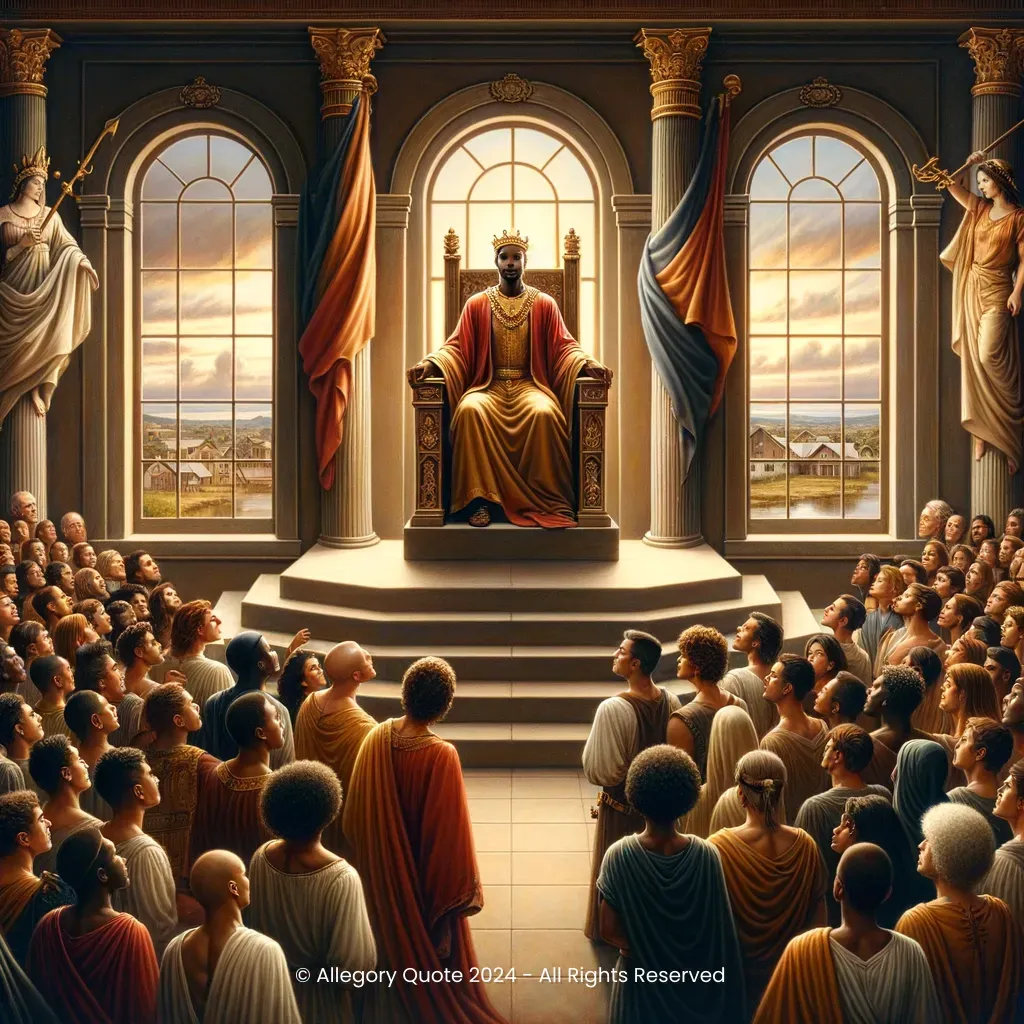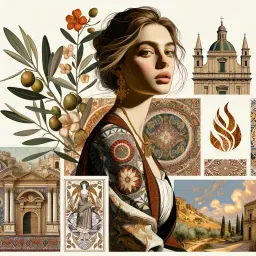”It is better to be feared than loved,
if you cannot be both“

0
0
0
0
- Meaning
- This phrase suggests that in leadership situations, it is more effective to maintain control through fear rather than seek to be loved if one cannot achieve both. The logic behind this, according to Machiavelli, is that fear is a more powerful and consistent emotion than love, as fear can be used as a more reliable mechanism of control than love, which is fickle and can change.
- Allegory
- The image features a luxurious throne as the central element, symbolizing power and authority, set in a throne room reflecting the magnificence of the Renaissance. The leader on the throne is dressed in opulent garments, indicating high rank. On one side, the crowd of fearful faces underscores the effectiveness of power through fear. In contrast, the symbolic figure of love, distant and sorrowful, adds an emotional dimension and highlights the impossibility of combining both sentiments. Symbols of power like banners and ceremonial weapons emphasize authority and control, while the tranquil landscape outside the windows suggests the peace that can be achieved externally. The warm colors in the throne room contrast with the cool tones of the figure of love, establishing a clear and visually impactful emotional differentiation.
- Applicability
- In everyday life, this phrase could be applied in contexts of leadership and power, suggesting that maintaining a level of respect (and hence, fear) can be more effective for sustaining authority. However, it should be handled with care to avoid crossing into abuse of power.
- Impact
- The impact of this phrase has been profound and long-lasting. It has been the subject of extensive discussion and analysis in political theory and has influenced the perception of ethics in leadership. It has inspired both admiration and criticism over the centuries and remains a significant reference when discussing strategies of power and governance.
- Historical Context
- The historical context of the phrase is the Italian Renaissance, a period of significant political, social, and cultural changes. Machiavelli wrote "The Prince" in 1513, during a time of instability and political conflict in Italy, where leaders often faced challenges to their power and needed realistic strategies to maintain their authority.
- Criticisms
- The phrase has been criticized for promoting a cynical and manipulative view of leadership, where leaders prioritize control through fear over genuine relationships based on mutual respect and love. Some argue that this perspective can lead to despotic governance and distrust between the leader and their followers.
- Variations
- There are variations and interpretations of this phrase depending on cultural and philosophical contexts. In some cultures, the idea of ruling through fear might be considered unacceptable and unethical, in contrast to societies that may view it as a pragmatic necessity in crisis situations.
-

To live in hearts we leave behind is not to die.
-

After me, the flood.
-

Luck is what happens when preparation meets opportunity.
-

When the government fears the people, there is liberty. When the people fear the government, there is tyranny.
-

I am the way, the truth, and the life; no one comes to the Father except through me.
-

Living is not necessary, navigating is.
-

These aren’t the droids you’re looking for.
-

Love is composed of a single soul inhabiting two bodies.
-

In Sicily, women are more dangerous than shotguns.
-

The end justifies the means.
No Comments